
Budget decentralization suitable for new government model
Regarding the issue of the arrangement of commune-level administrative units, which is posing many new requirements and tasks, delegate Bui Thi Quynh Tho ( Ha Tinh Delegation) said that currently, the commune level is the last budget level, and at the same time, the budget-using unit does not have a subordinate budget unit. However, after organizing the 2-level local government unit, some district-level budget units were transferred to the commune level for management, such as primary schools, secondary schools, and some other centers and public service units... These units are implementing the independent budget model at the district level, which is both a state budget unit and a budget-using unit. How will the budget model and process be implemented?

"I propose that the drafting committee clarify the content of "competent authorities assign budget estimates" to budget estimate units at all levels, ensuring that the organization and implementation of the state budget process is consistent with the requirements of administrative unit arrangement, especially at the commune level," delegate Quynh Tho suggested.
Also referring to this content, delegate Thach Phuoc Binh ( Tra Vinh delegation) said that the draft law needs to pay attention to the issue of restructuring the state budget system according to the model of organizing a 2-level local government. According to the delegate, the organization of administrative units is currently fundamentally changing the structure of state management at the local level. Article 7 of the draft law has expanded in the direction of flexible budget decentralization to suit the government model but has not yet clearly stated the principles of budget handling for localities transitioning to the management model.
“I propose to add provisions on budget management corresponding to the actual government model, including regulations on cases where there is no People's Council and no longer a financial legal entity; assign the Government to issue a list of guidelines for establishing specific budgets with a monitoring and decentralization mechanism in large cities and special administrative zones in the future,” said delegate Thach Phuoc Binh.
Budget management should be based on "output"
Emphasizing the viewpoint that budget management and allocation must be based on "output", delegate Pham Thi Thanh Mai (Hanoi Delegation) said that this is a very important factor in our responsibility to the people and voters.
Commenting on the provisions in the draft law on budget reserves to share the revenue reduction for investment projects under the public-private partnership model, delegate Pham Thi Thanh Mai suggested that the Government should provide detailed guidance on the principles, conditions, and cases in which budget reserves can be used to ensure increased accountability as well as transparency and supervision of the system of elected agencies.

Regarding the regulation on the use of budget reserves to support in emergency cases, delegate Pham Thi Thanh Mai proposed to amend in the direction: The source of "state budget reserves used to support lower-level budgets in preventing and fighting natural disasters, catastrophes, epidemics, famine relief, important tasks of national defense and security and other necessary tasks after the lower-level budget has used 50% of its own level to perform but has not yet met the demand". According to the delegate, such a regulation aims to ensure that localities do, localities are responsible and avoid relying on others in performing tasks under their authority.
Regulations on the duties and powers of state agencies and the responsibilities and obligations of organizations and individuals regarding the state budget in the draft law also received much attention and discussion from many delegates.
Delegate Nguyen Truong Giang (Dak Nong Delegation) said that, regarding the authority to allocate the central budget, Article 19 of the draft law stipulates that the authority of the National Assembly only decides on the overall and major structure of the state budget estimate, the allocation of the central budget, decides on the state budget expenditure estimate, details of development investment expenditure and regular expenditure. Meanwhile, the National Assembly does not decide in detail on the fields of education and training, vocational training, science and technology, innovation and digital transformation; does not decide in detail on each area of the central budget, development investment expenditure, regular expenditure of each ministry, ministerial-level agency and central agency. The draft law supplements the provision that the Prime Minister exercises these powers (Clause 2, Article 26 of the draft law).
“Regarding this issue, I see that, according to the provisions of Clause 4, Article 70 of the 2013 Constitution, the National Assembly decides on the state budget estimate and allocates the central budget. Therefore, the drafting agency needs to consider the fact that the National Assembly does not decide on specific expenditures for the fields of education, training and vocational training, science and technology... The National Assembly deciding on detailed central budget expenditure levels for each field helps to make the allocation of the central budget transparent and use it for the right goals and purposes,” said delegate Nguyen Truong Giang.
Proposal to increase public debt ceiling for special cities
Regarding Clause 2, Article 35 of the draft law regulating the revenue sharing and percentage (%) between the central budget and local budget, many delegates chose option 2 stated in the draft law.
Notable provisions include land use fees and land rent (except for land use fees associated with assets on land managed by central agencies, organizations and units), localities do not receive additional balance, the central budget enjoys 30%; local budget enjoys 70%. Localities receive additional balance, the central budget enjoys 20%; local budget enjoys 80%. Regarding value added tax, the division is implemented: The central budget enjoys 70%, local budget enjoys 30%...
Regarding the provisions in the draft law on the outstanding loan balance of local budgets, delegate Tran Hoang Ngan (Ho Chi Minh City Delegation) said that adjusting the increase in outstanding loan balance to meet the requirements of investment and development in the current new situation is necessary because after the administrative unit arrangement, localities will expand their scale, so they need investment resources to increase connectivity.

“I propose that the National Assembly and the Government consider further for special urban areas such as Hanoi and Ho Chi Minh City, which are implementing many large projects. Instead of the ceiling on outstanding loans not exceeding 120% of the estimated local budget revenue according to decentralization (for localities that do not receive additional balance from the central budget), in the coming time, the ceiling can be exceeded and raised to 150-200%,” delegate Tran Hoang Ngan suggested.
However, also related to this issue, delegates Ta Van Ha (Quang Nam delegation) and Tran Van Lam (Bac Giang delegation) noted that increasing the public debt ceiling for localities needs to be carefully considered because in reality, "easy borrowing" can easily lead to "heavy debt".

Minister of Finance Nguyen Van Thang, on behalf of the law drafting agency, received and explained the issues raised by delegates, emphasizing that the increase in public debt ceiling must be controlled within the allowable limit and ensure loan quality and project quality, avoiding ineffective use leading to a burden on the budget.
Source: https://hanoimoi.vn/bo-truong-bo-tai-chinh-tang-tran-no-cong-phai-kiem-soat-gioi-han-cho-phep-703515.html


![[Photo] Vietnamese and Hungarian leaders attend the opening of the exhibition by photographer Bozoky Dezso](https://vphoto.vietnam.vn/thumb/1200x675/vietnam/resource/IMAGE/2025/5/29/94d8ceca5db14af3bf31285551ae4bb3)



![[Photo] Prime Minister Pham Minh Chinh meets with Hungarian President Sulyok Tamas](https://vphoto.vietnam.vn/thumb/1200x675/vietnam/resource/IMAGE/2025/5/29/dbcaa73e92ea4448a03fe1d0de6d68e8)

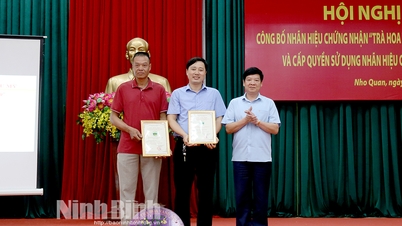

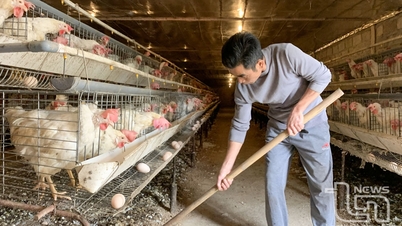

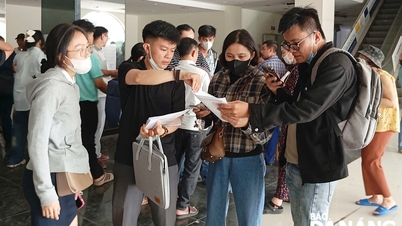


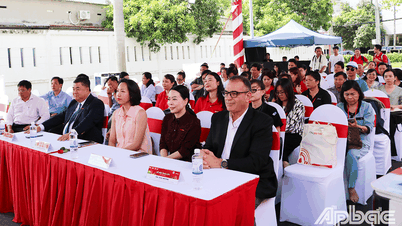

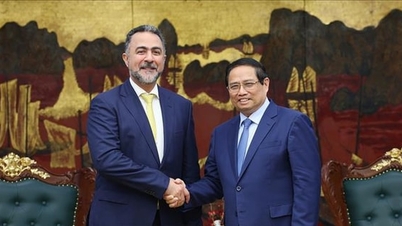






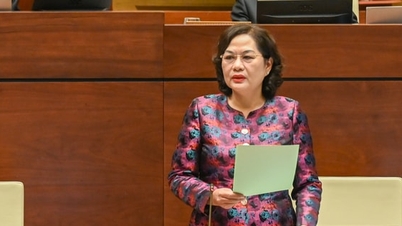



![[Photo] Prime Minister Pham Minh Chinh receives a bipartisan delegation of US House of Representatives](https://vphoto.vietnam.vn/thumb/1200x675/vietnam/resource/IMAGE/2025/5/28/468e61546b664d3f98dc75f6a3c2c880)



















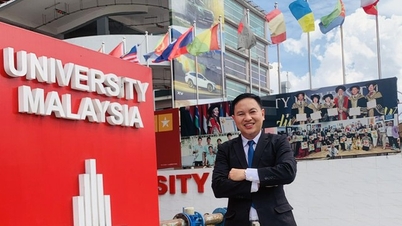















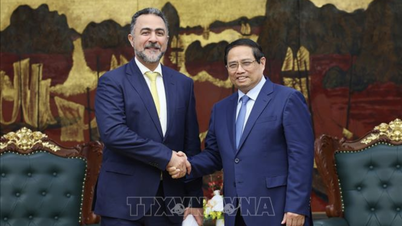










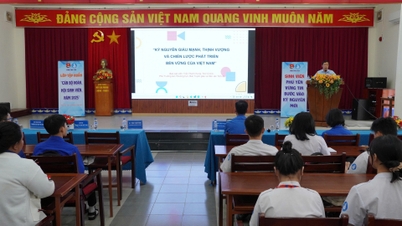















Comment (0)